Yasmin Levy, Müpa, 03.12.2018, 8 pm
Yitzhak Levy was a famous singer, songwriter, radio director, composer and musicologist in Israel. He met his future wife, Kokhava, a singer and 27 years his junior, at the Kol Yisrael (Sound of Israel) radio founded by himself. Their youngest child, Yasmin Levy, grew up in the Holy Land, among thousands of musical and cultural influences, and soon one voice on her mind became stronger and stronger: the ancient outcry of the Sephardim. She listened to them and, enthralled, started to follow their pathways. Nowadays she sings in three languages, writes her own songs in two, and she dedicated her life to bring the Sephardim’s heritage to the broadest audience possible – such special songs that survived through ban, torture, deportation and death throughout half a millennium.
It seems that at first, you wanted to do something else what your parents did, but in the end, you became a musician yourself. What were the main milestones, decisions or revelation moments (if you had any) when you realized that music and you have indeed something to do with each other?
My father passed away when I was one year old. But he was so much alive all my youth… He was a great musician, and did not want any of his children to become musicians as a way of life. I did everything I could to avoid becoming a singer because of my father’s will. So, I learned reflexology, and I opened my own clinic. I was so excited when the first client came. After the excitement, I found myself looking constantly at the clock, praying for the time to pass. At the end, she asked: “So, when can I come again?” I made another appointment for her. She came the second time. I was happy for my success, but then I found myself, watching again the clock, praying for the time to end. At the end of the session she was so happy, she asked again: “So when is the next time?” I smiled at her gently and said: “I’m afraid the answer to that is never… as I am going to sing…”
How was your childhood and adolescence in Jerusalem? What were the main influences of the city on your personality and your music?
Jerusalem is a melting point. People came to live there from all over the world. I am so lucky to be born and raised in Jerusalem. As I grew up listening to so many kinds of music, I smelled so many different smells. I ate so many different kinds of food. I am the result of the most beautiful mixture and this mixture is the fountain from which I create.
How could you describe Jerusalem to someone who has never been there?
Like nowhere else in the world… “The stones of Jerusalem are crying…”
When you started to play Ladino music, were you attached to Sephardic Jew history and their vicissitudes throughout Europe, Africa and Asia? Does it have an impact on your music as well?
Oh dear… I grew up with this most beautiful music. It was romantic, funny and charming. But when I started to bring these songs to the world, to people who had nothing to do with this tradition, I had to explain then what was this music all about. So I started to read as much as I could, and it was only then that I learned the history, the pain, the sorrow of the Jews that were expelled from Spain, the Sephardic Jews. It was at that point, the songs took on a different meaning, and my singing became a mission to me. Singing those songs, which are so alive after 500 years, means to me that you cannot and you must not try to convert people to what it is that YOU believe is right, but to accept people for who and what they are, what they believe in, even when it is different from your faith and life.
Did you also do some research on your own descendants’ background who lived in the territories of modern-day Turkey for centuries?
Not so much, but I did go to Manisa to look for the home where my father was born before the war between Turkey and Greece. It was during that war that my family escaped from Manisa and came to Jerusalem where I was born.
You became famous as a Ladino singer, but you rather write your own songs in modern Spanish. What is the reason for that? Do the two languages and the songs sound very differently?
People used to treat Ladino songs as something very ancient and old, very fragile, like from the museum. But I refused to see them like that since I was very young. I saw them as love and pain; dramatic songs, full of fire and passion. They were 500 years old, but very young and relevant for me. My mission was to bring them to as many people as I can in this world. It was and still is a holy thing for me. But as an artist, I needed to express my madness, my creation, and Ladino is so sacred to me, that I feel I can be more wild and free with my creativity when it is expressed in modern Spanish.
I read that although you originally planned to write and sing in Hebrew, soon you turned to Ladino and only rediscovered Hebrew through nursery rhymes that you sang to your son. How do you decide nowadays, then, if a new song comes to your mind, whether it should be in Hebrew or Spanish?
It is very strange. My native language is Hebrew, and I found myself running away from this wonderful language as a singing language for more than 10 years. I didn’t see the charm. I was also afraid of it. I do sing Hebrew today as I finally feel I can express myself in this language. It took me more than 10 years to feel I finally can… But still, in my heart I sing in Spanish and my soul bleeds when I do so.
Can you imagine music to be a universal language to unite all the diversities in the Middle Eastern region and contribute to peace and mutual understanding? If yes, what kind of music and/or musical project could it be?
When I was young and innocent, I used to believe that music can bring peace. Music is religion. If humanity had to live in silence, with no music at all, humanity would have died. Music is our gift, it is the magic. I have found musicians who don’t really want to play with me because of my nationality or religion, but then once we begin to play music together, the music brings love, sharing, and mutual respect. But I am so sorry to realise that music is unfortunately not enough. People fight for land, for food, for their lives, but I say, if you take the music away, you can just start counting the days till the end of the world.

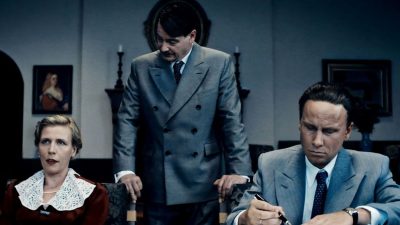
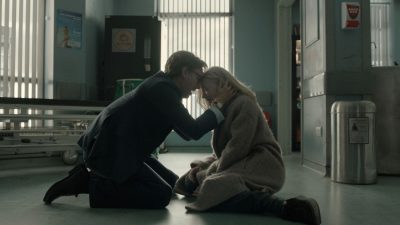


















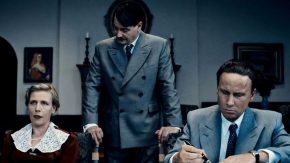
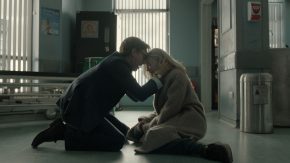

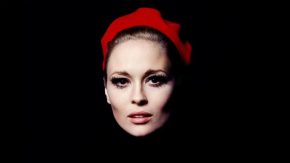

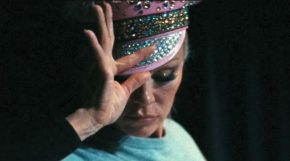
Comments